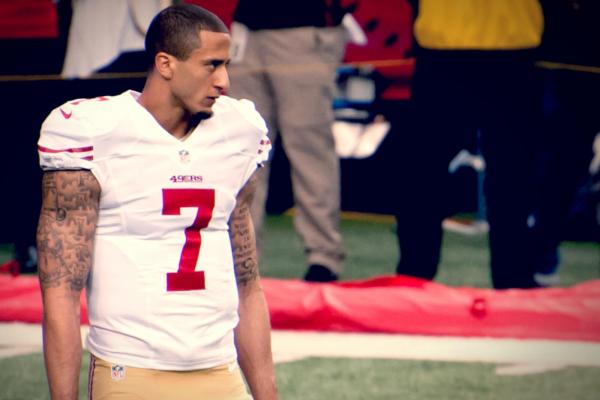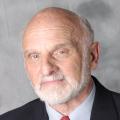THOMAS KUHN INTRODUCED the term “paradigm shift” into common parlance in the 1960s. New paradigms teach us to see the world differently. When we receive a new paradigm, all the data flees the old one and settles into the new. For Kuhn, the classic example of a paradigm shift is the way Copernicus’ solar-centered model of the world displaced Ptolemy’s Earth-centered theory during the European Renaissance.
I knew all of that. But when Irish poet Micheal O’Siadhail referred to Copernicus as “Copernik” in his recent release, The Five Quintets, it set me toward a new thought. “Copernik” (first name Nicolaus) sounds a lot like “Kaepernick” (first name Colin).
It followed for me that Copernik (with his solar-centered hypothesis) and Kaepernick (with his refusal to stand during the national anthem at NFL games) were up to the same thing. Both performed new paradigms. While Copernik’s is now settled theory, Kaepernick’s remains highly contested. It is, moreover, highly contested precisely because it is a new paradigm that threatens everything invested in the old paradigm.
The old paradigm, so treasured in the NFL, consists in a drama of violence, money, and sex (covered by pseudo-nationalism). It provides for rich white “owners” to stage violent struggles between mostly black players. That old paradigm requires black players to conform to the ideology of white owners who use the U.S. flag to legitimate their enormous wealth and control, as if these were somehow patriotic. And because the liturgy of sex-money-violence-nationalism has become so ordinary and routine, no one notices it—exactly how the owners prefer.
Now comes Colin Kaepernick with a new paradigm that asserts that black players are free agents who are not “owned” and who do not need to participate in, collude with, or endorse the owner’s ideology.
All of that is voiced in the simple act of refusing to stand—of kneeling instead during the national anthem. That act of visible resistance places much in jeopardy about the old liturgy, and provokes the NFL owners, the U.S. president, and all of those who have a stake in old power arrangements.
THE RESPONSE TO Kaepernick’s action was as vigorous and negative as it was for Nicolaus Copernik, and for the same reason. The unraveling of the old consensus puts at risk much that had been taken as settled and certain. With that jeopardy comes exposure of old racist “ownership,” old inequality of wealth, and the old tacit assumptions that the U.S. flag is allied with white racist wealth.
Nicolaus and Colin have two crucial matters in common. First, they are both discerned as heretics who have departed from settled orthodoxy. The beneficiaries and guarantors of the old orthodoxy will have none of it. It was a huge matter for Copernik to conclude that the Earth is not the center of all reality.
Second, both face insistent pressure to conform to the old orthodoxy and to give visible assent, even if they think or know otherwise. Thus, Nicolaus was pressured to conform to church teaching about an Earth-centered universe. And Colin is pressured to conform to the dominant liturgy by standing for the anthem, no matter what he thinks or believes. Both were expected to submit. The managers of the old orthodoxy recognize that if such a first step of unraveling is not blocked, there will be no end to it. The pressure to conform is absolute for Colin, so that he cannot get a job in the NFL—banished from the plantation!
The whole church, it occurs to me, has as our work (and as our joy) advocacy for the new paradigm. The new paradigm contradicts the old certitudes of white male hegemony and the accumulation of inordinate wealth under the flag of patriotism. Kaepernick’s new paradigm is as far-reaching and dangerous to the old order as Copernik’s was to his! It is our work to see to the rejection of the old paradigm and to assure that the data is transferred to the new paradigm (and so radically rearranged) where it takes on new generative power.
In the case of Colin Kaepernick, there are many who have signed on for the new paradigm. We can see that the new paradigm (of refusing to stand in honor before exploitative power) is as old as Moses and as defining as Jesus. It turns out that the “old, old story” becomes the “new, new song.” That “new song” of peace, justice, and freedom, moreover, only slightly overlaps with the “anthems” sung in the liturgies of the NFL.

Got something to say about what you're reading? We value your feedback!






